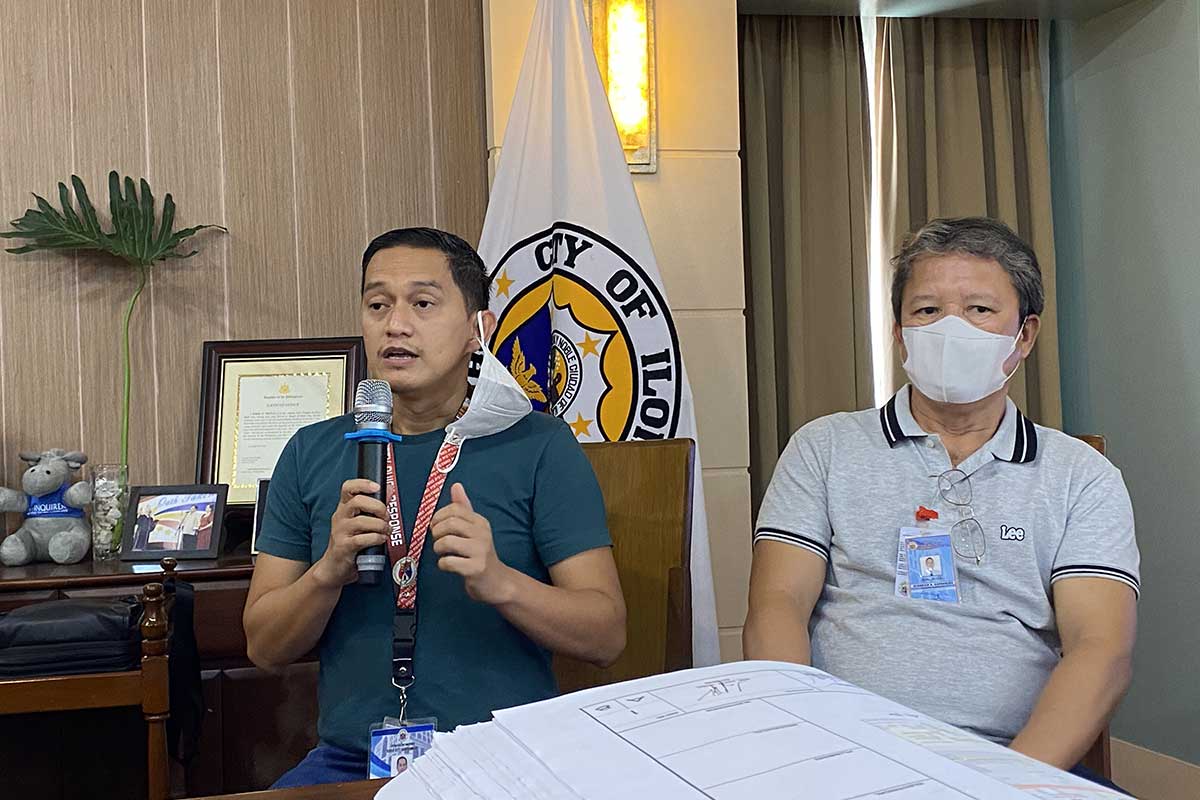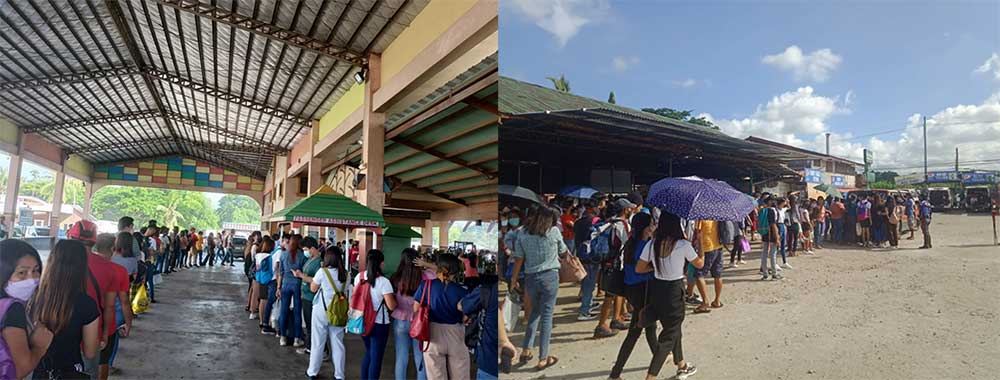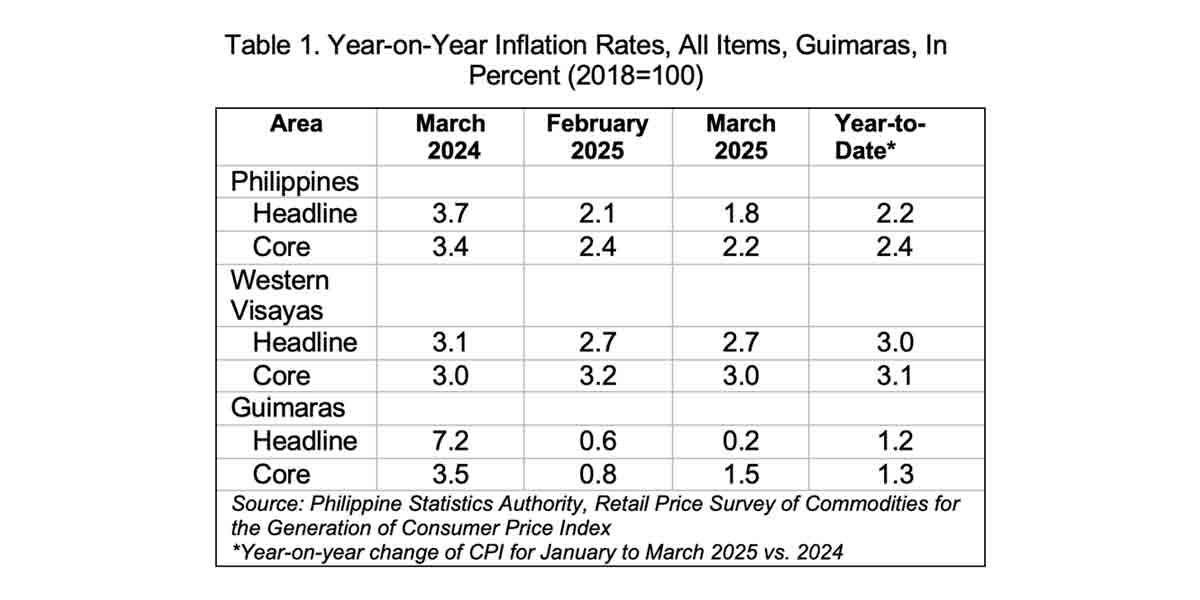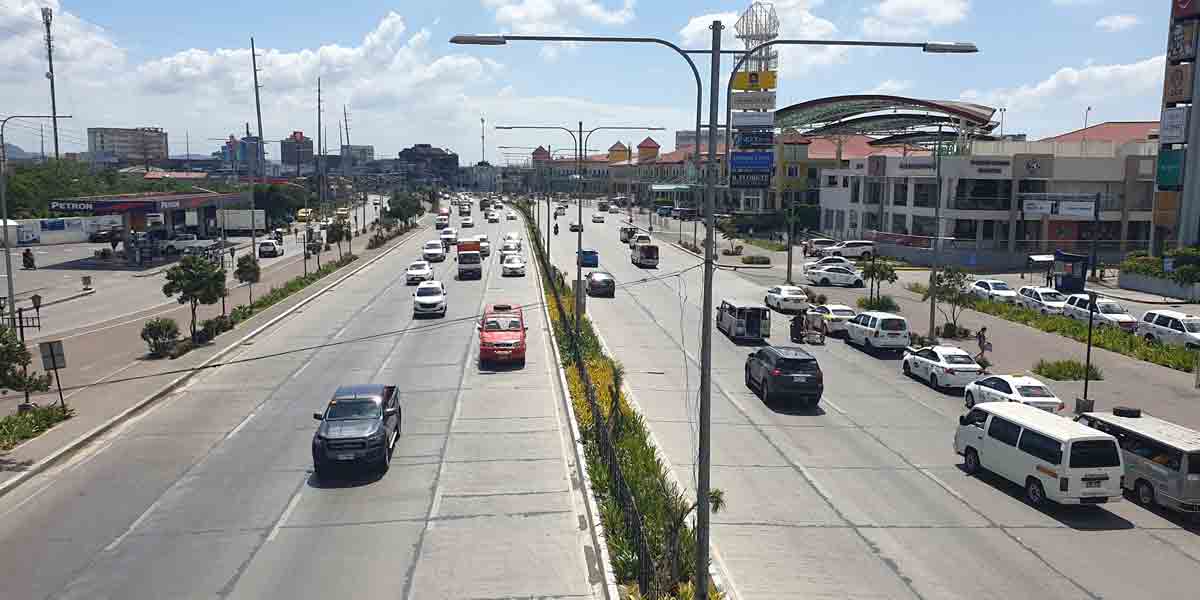
By Joseph B.A. Marzan
Iloilo City Mayor Jerry Treñas asked for the public’s patience and consideration as the implementation of the city’s Local Public Transport Route Plan (LPTRP) hits its second day and was met with backlash on long lines in border terminals and decommissioned jeepney units.
In his regular press conference, Treñas said that major issues in the implementation included the lack of jeepney units and the absence of proper signages indicating the new route stops.
He mentioned that the Land Transportation Franchising and Regulatory Board-Region 6 (LTFRB-6) is ready to come up with more special permits to augment the deficiency in units.
“On Sunday [June 12] we were already talking with [LTFRB-6 Regional Director Richard] Osmeña, and he told me that they were ready to add traditional jeepneys in areas which are lacking [jeepney units],” Treñas said.
“We have to understand that other routes with modern jeepney [units] haven’t arrived yet. They are expecting more than 1,000 to arrive. There are areas where traditional jeepneys should be allowed,” he added.
The mayor said that there would still be a chance to revise the LPTRP in the city, based on the results of their assessment, saying “all options are on the table”.
“If the situation is so chaotic and it will not result to better transport plans for our commuters, I do not see any reason why we should not revise [the LPTRP] to make it more reactionary to the needs of our commuters,” he said.

Public Safety and Transportation Management Office (PSTMO) chief Jeck Conlu, who was also at the press conference, recognized that they were lacking in the communication aspect, especially on the new and modified routes.
Police and PSTMO officers have been stationed in all terminals to assist passengers with information on the new routes, and additional personnel will be deployed in the next few days.
Conlu identified the Mohon and Tagbak terminals in Arevalo and Jaro districts, respectively, as the critical areas where authorities will be focused on.
The transportation office and local police have identified 6:30 a.m. to 9:00 a.m. and 4:00 p.m. to 7:00 p.m.
Conlu said that between 50 to 100 additional jeepney units will be dispatched to the Mohon and Tagbak terminals in the next few days, pending special permits from the LTFRB-6.
He also explained that the city government is just implementing the plan approved by the LTFRB.
“After [the implementation], we will be making recommendations. The franchise and the routes are not given by the city to our jeeps but it’s the [LTFRB]. Whatever is approved [by the LTFRB] for us, that is what we will follow,” he explained.
“We were given a 6-month trial period, because we will gather data and justifications based on actual implementation, and hopefully with the recommendations to be made, the [Department of Transportation] and the LTFRB may make considerations,” Conlu added.
Conlu said designated PSTMO personnel are surveying terminals to ensure that all 1,677 approved regular jeepney units, as well as the 231 jeeps with special permits, are plying the roads.
Treñas asked for the public’s consideration as they are still assessing the implementation of the program and their way forward.
“We continue to monitor and receive information from various sources on the present situation. We are asking the public’s patience. The LTFRB, together with the LTO and the PSTMO are looking at the situation to alleviate and respond to where the problems actually are to ease the people’s woes especially on a Monday,” the mayor said.
The LPTRP was first enacted by the city government via Regulatory Ordinance No. 2022-027, which was approved by the LTFRB central office via Memorandum Circular No. 2022-024.
The DILG’s guidelines on the LPTRP, issued in 2018, provides the plan’s use only for intra-city or intra-municipality travel, and not for cross-boundary travel.
‘NECESSARY BURDEN’
Meanwhile, the Iloilo Business Club (IBC) expressed their support for the Iloilo City government’s implementation of the Local Public Transport Route Plan (LPTRP).
In a statement, the IBC called the LPTRP implementation as a “necessary burden” that was key to the city’s progress.
“We are only seeing the early days of implementation with the expected difficulties in the transition, but with more time and further planning by our local authorities, we hope that the commuting experience of the public, especially of the workers and employees in the city, will significantly improve,” the IBC statement said.





















